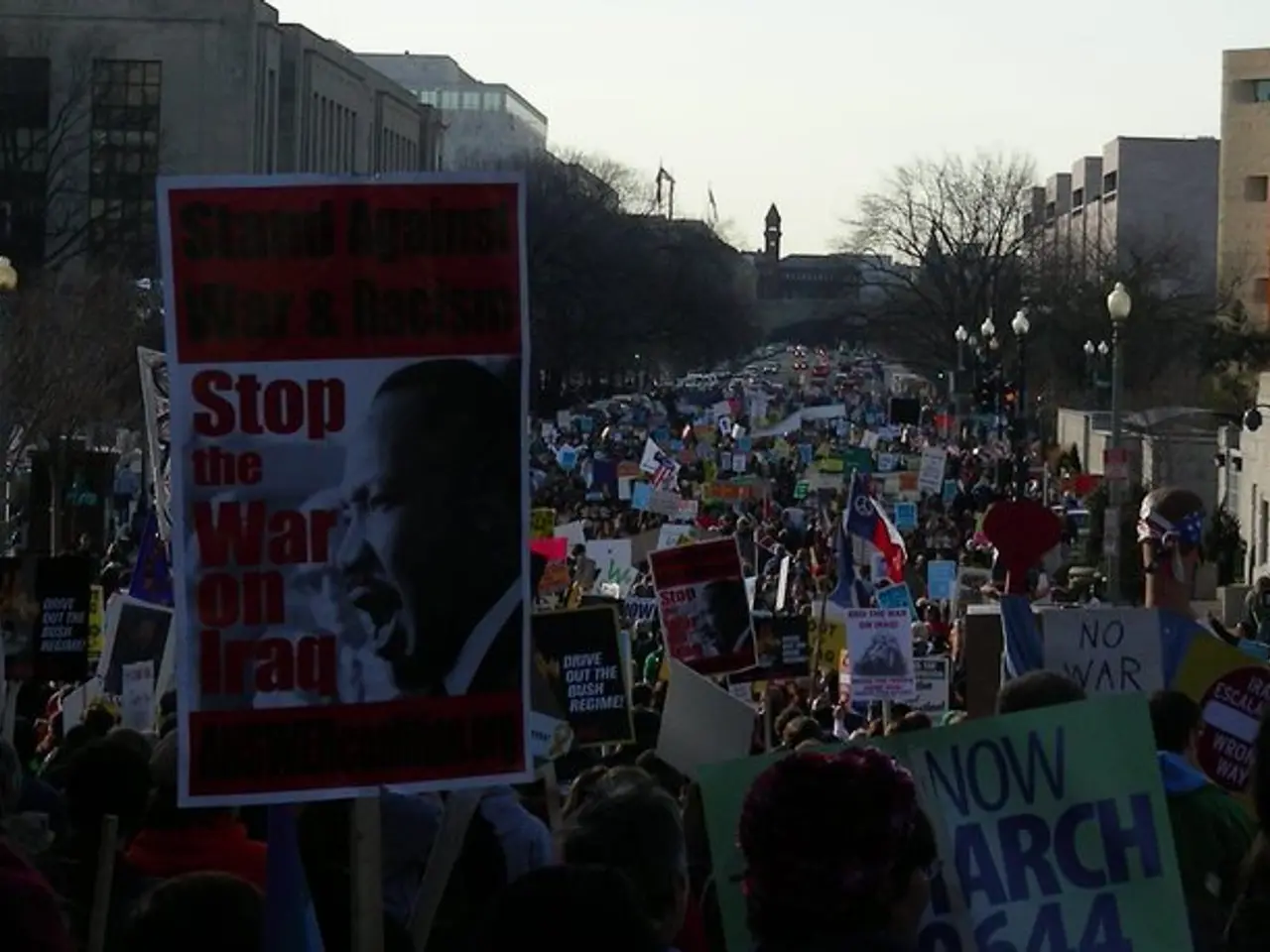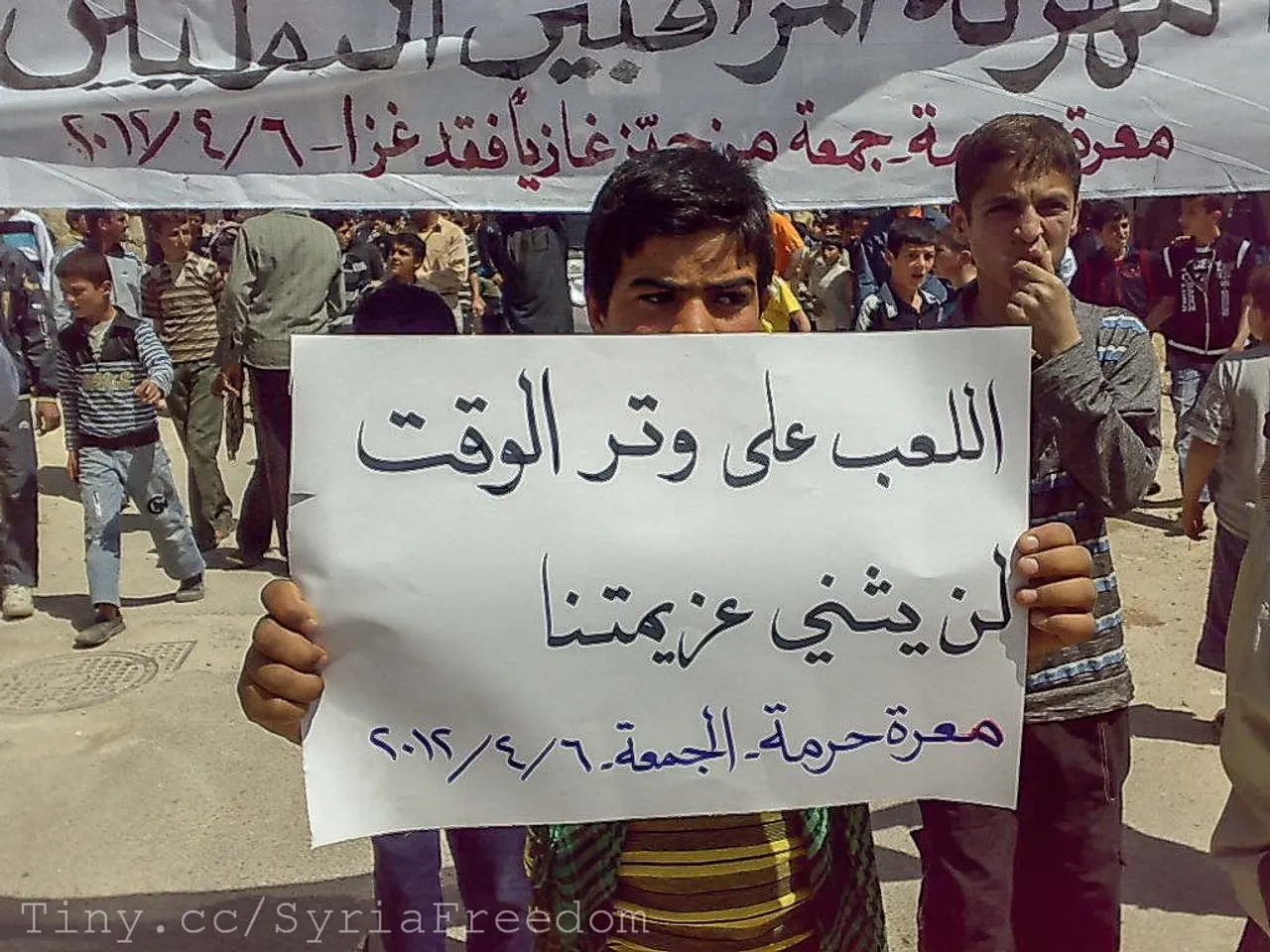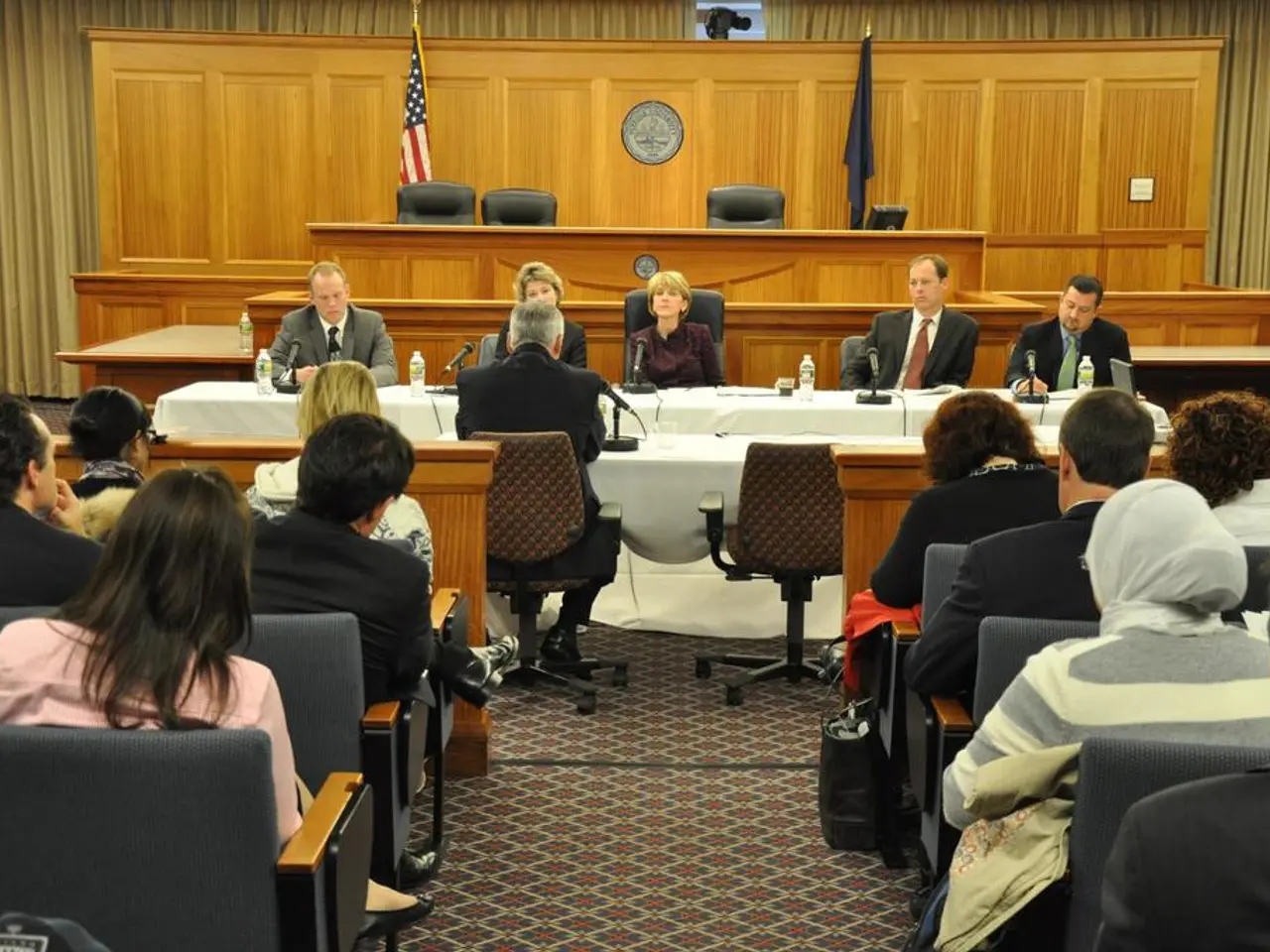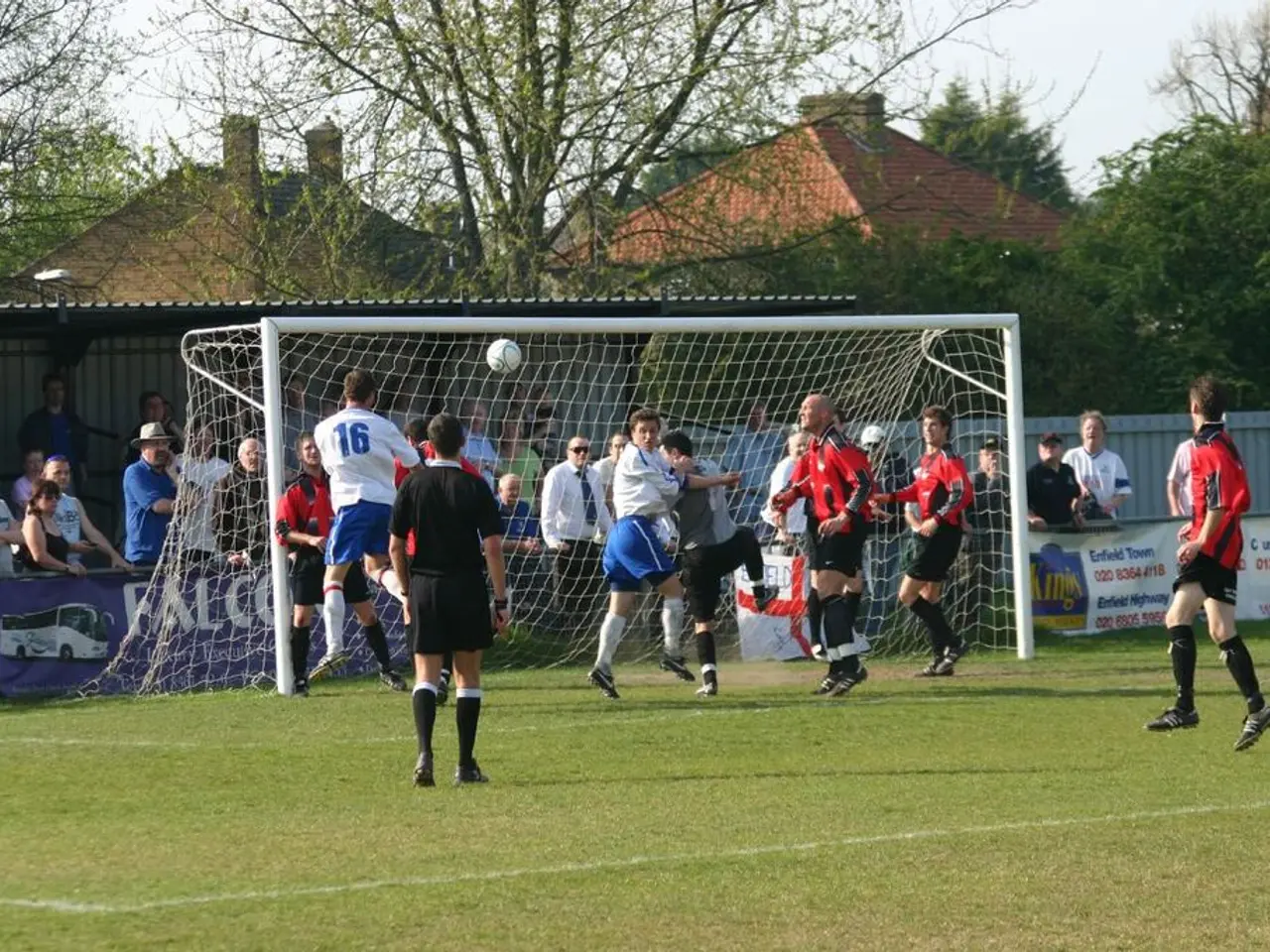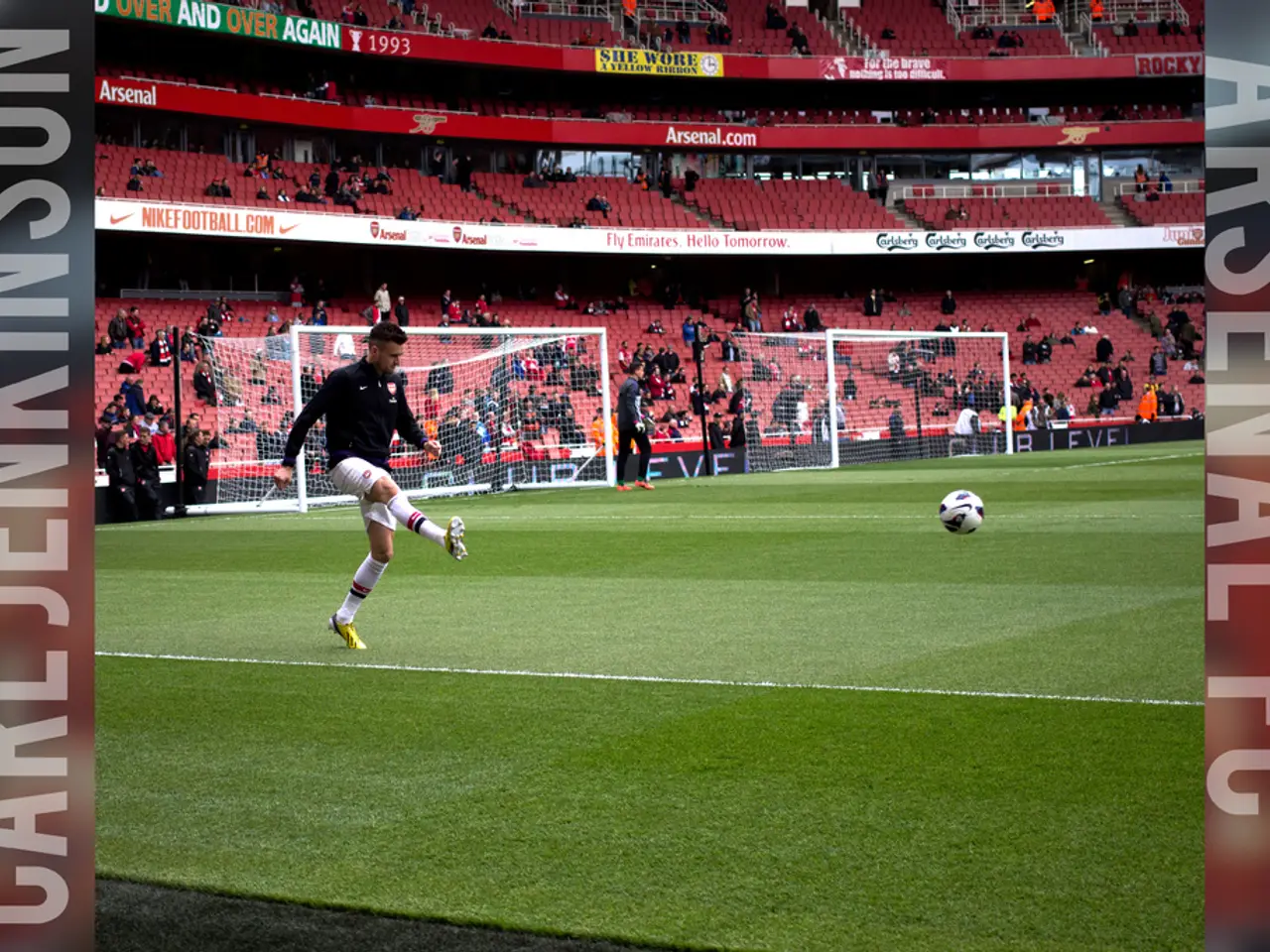Establishing a potentially harmful pattern.
A possible meeting between U.S. President Donald Trump and Russian President Vladimir Putin amid the ongoing Ukraine war has sparked concerns and debates among world leaders. The potential diplomatic encounter carries significant implications and potential dangers that warrant careful consideration.
One of the key concerns is the potential diplomatic gains for Russia. Putin could solidify diplomatic recognition simply by meeting Trump without making substantial concessions, which might be seen as a diplomatic win for Russia[1]. This could potentially legitimize Putin's actions in international politics, a concern shared by many, including retired General-Major Victor Yagun[1][2].
Another concern is the impact on Ukraine’s territorial integrity. Reports suggest Putin may have softened demands to limit claims to the Donetsk region rather than four regions, but Ukraine controlling 25% of Donetsk makes any ceding of territory unprecedented and concerning[1]. The mere fact of Putin's participation in such talks could be seen as legitimizing Russian aggression, a stance the coalition maintains as crucial to maintaining international law and order[1].
The exclusion of Ukraine from the meeting raises alarms about decisions being potentially made without their participation, undermining Ukraine's position in negotiations[1]. This concern is compounded by the possibility that Putin may not meet with Ukrainian President Vladimir Zelensky[2].
The potential meeting could also strain Western coalition unity. The EU and Western allies are working to present a united front and may attempt to influence the U.S. position. A Trump-Putin deal without broad Western agreement could fracture the coalition supporting Ukraine[1].
However, White House officials describe the meeting as primarily to gather information from Putin to better understand how to end the war, rather than formal negotiations[2]. This approach is seen as a strategic opportunity for the U.S. to gain insight into Russia's positions.
Despite these potential meetings or negotiations, the coalition's commitment to supporting Ukraine remains strong[1][2]. Ukrainian President Zelensky has called Putin a “bluffer” and is mobilizing further support as conflict, including drone attacks and military activity, continues unabated[2].
In summary, the meeting could risk legitimizing Russia’s territorial ambitions, undermine Ukraine’s sovereignty, and potentially fracture Western support. However, given Ukraine's absence and ongoing hostilities, the balance of power and adherence to international law remain highly precarious[1][2].
The idea of appeasing aggressors with concessions is considered a dangerous strategy, reminiscent of appeasing Hitler in the 20th century[3]. Europe and civilized countries do not want Putin on the international stage, a sentiment shared by Victor Yagun[2].
Despite these challenges, there is hope that the Western coalition will remain intact and continue moving in the right direction. The historical precedents serve as a reminder of the dangers of concessions in international politics, and world leaders are aware of these dangers.
[1] The Washington Post. (2021, June 16). Trump wants to meet Putin and Zelensky. What does that mean for Ukraine? Retrieved from https://www.washingtonpost.com/world/2021/06/16/trump-putin-zelensky-ukraine/
[2] The Guardian. (2021, June 17). Trump-Putin summit could legitimise Russian aggression in Ukraine, warns Zelensky. Retrieved from https://www.theguardian.com/world/2021/jun/17/trump-putin-summit-could-legitimise-russian-aggression-in-ukraine-warns-zelensky
[3] BBC News. (2021, June 16). Trump-Putin summit: What's the history behind the meeting? Retrieved from https://www.bbc.com/news/world-us-canada-57528685
- The ongoing debate over a potential meeting between U.S. President Trump and Russian President Putin, amid the Ukraine war, is not just about war-and-conflicts, but also policy-and-legislation, as concerns surrounding diplomatic gains for Russia and potential legitimization of Putin's actions in international politics are high on the agenda.
- As the potential meeting could impact Ukraine’s territorial integrity, it is also a matter of general-news, with reports suggesting that any ceding of territory could be a concerning development and the exclusion of Ukraine from the meeting raising alarms about decisions being potentially made without their participation.

